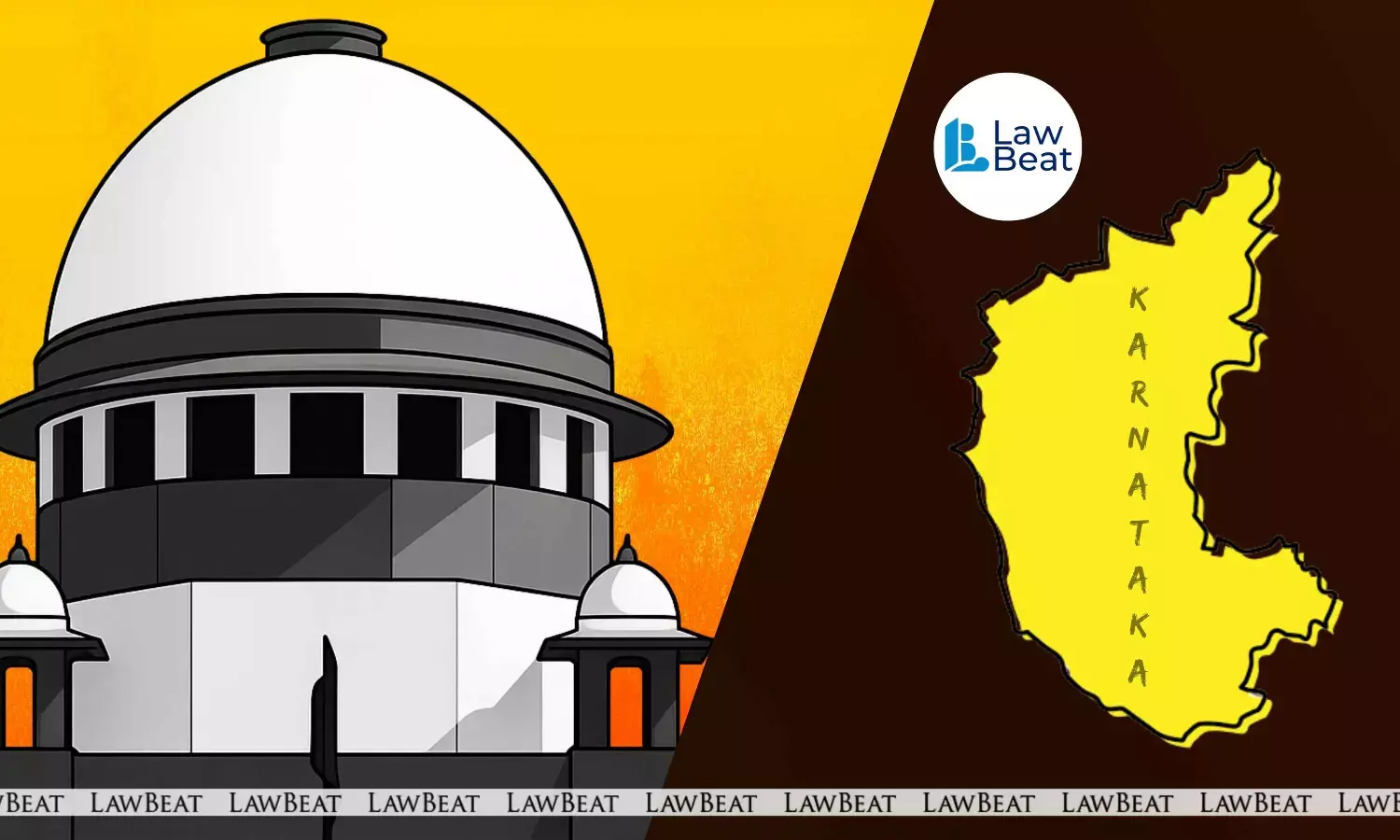Supreme Court Halts Use of ₹3,000 Cr TDRs Granted To Mysuru Royals; Refers Palace Dispute To 3-Judge Bench

The survey is being conducted by the Karnataka State Commission for Backward Classes at a cost of Rs 420 crore.
The Supreme Court on Thursday halted the utilisation of Transferable Development Rights (TDRs) worth approximately Rs. 3,000 crore issued to the legal heirs of the erstwhile Mysuru royal family in connection with the acquisition of 15 acres of Bangalore Palace grounds.
The matter has now been referred to a Special three-judge bench for final adjudication.
The Special Bench of Justice Surya Kant, Justice Dipankar Datta, and Justice N.K. Singh was hearing a plea filed by the Karnataka Government challenging the issuance of the TDRs, claiming the land had already vested in the State under the Bangalore Palace (Acquisition and Transfer) Act.
Appearing for the Karnataka Government, Senior Advocate Kapil Sibal submitted that the TDR provision in question arises from Section 14B of the Karnataka Town and Country Planning Act, which came into effect in 2004.
Responding to queries from the Bench, Sibal contended that the issuance of TDRs in this case is legally untenable and has enormous financial implications.
The Respondents argued that the case had been examined by at least six different benches earlier, suggesting that the matter was long-contested and complex.
Justice Kant, while expressing concern over the interim relief granted to the heirs, observed, "The state legislature has enacted a law, whether it is good or bad is for us to decide. Under that law, the entire property has already been acquired. You are now before us in appeal, and through interim relief, you are effectively receiving benefits worth Rs. 4,000 crore."
The Bench questioned the legal basis of the earlier orders and noted the potential clash between public interest and private claims: "This is not merely a property dispute. It raises serious concerns involving public interest versus individual benefit. The matter must be examined in light of the Bangalore Palace Acquisition Act."
In its interim order, the Court ruled that all TDRs issued under interim or contempt orders would remain with the Registry and, if already in the possession of the appellant, they are not to be used, transferred, or sold.
"No third-party interest shall be created, nor any personal benefit drawn from the said TDRs during the pendency of these proceedings," the Court directed.
The Court further clarified that the Karnataka Government’s review petition shall be listed in the week commencing July 21, 2025. The interim arrangement will be subject to the outcome of that petition.
The Bench also clarified that in case the review is dismissed, the interim directions will remain in force for four more weeks or until the matter is taken up by the three-judge bench, whichever is earlier.
Additionally, to prevent procedural complications, the Court ordered that the consequential effect of its earlier orders dated 10.12.2024, 17.05.2022, and 22.05.2025 shall “remain in abeyance” until further notice.
The matter is now scheduled for final hearing in the week commencing August 18, 2025.
Previously
It is to be noted that on May 27, the Supreme Court had referred the matter to the CJI. The Bench had observed that the matter ought to be heard by the bench of Justice M.M. Sundresh, as the direction being challenged had originated from proceedings in a contempt petition. The Court had directed: “The application be referred to the Hon’ble Chief Justice of India on the administrative side for suitable directions.”
Earlier, on May 26, the Supreme Court had agreed to hear Karnataka government's plea challenging the decision of the Supreme Court itself from last week directing it to hand over the Transferable Development Rights (“TDR”) acquired for widening the Ballari and Jayamahal roads to the legal heirs of the erstwhile Mysuru royal family.
Senior Advocate Kapil Sibal, appearing for the State government had told a CJI BR Gavai led bench today, "We are the owners of the land...How can the TDR be granted...".
"Can we sit in appeal over a decision made by a coordinate bench?", the CJI had asked in return.
In the impugned judgment, Supreme Court had come down on the government authorities saying, "Yet, undaunted, the contemnors seem to be further dragging their feet by manoeuvres and same is deprecated. We say so, for the simple reason that contemnors under the umbrella of the legislation orders of the Court which ought to be implemented in letter and spirit is sought to be stifled or staved off which cannot be countenanced at any rate".
The legal heirs had moved the Apex Court by way of contempt petitions.
In February, the Supreme Court had ordered the State to deposit the TDR certificates while taking a stern view of the government’s changing stands on the issue. Sibal, appearing for the contemnors had contended that the contempt petitioners were not eligible or entitled to receive the DRC’s/ TDR’s.
The Court had then refused to go into the issue that in event of complainants not succeeding in the civil appeals the exchequer (State) would not be in a position to recover the value of DRC’s/ TDR’s from the complainants, as the issue relating to the acquisition of the larger extent of land measuring 472 acres under the enactment i.e., Bangalore Palace (Acquisition and Transfer) Act, 1996. (“BPAT Act”).
Case Title: Indrakashi Devi v. The State of Karnataka & Another connected matter
